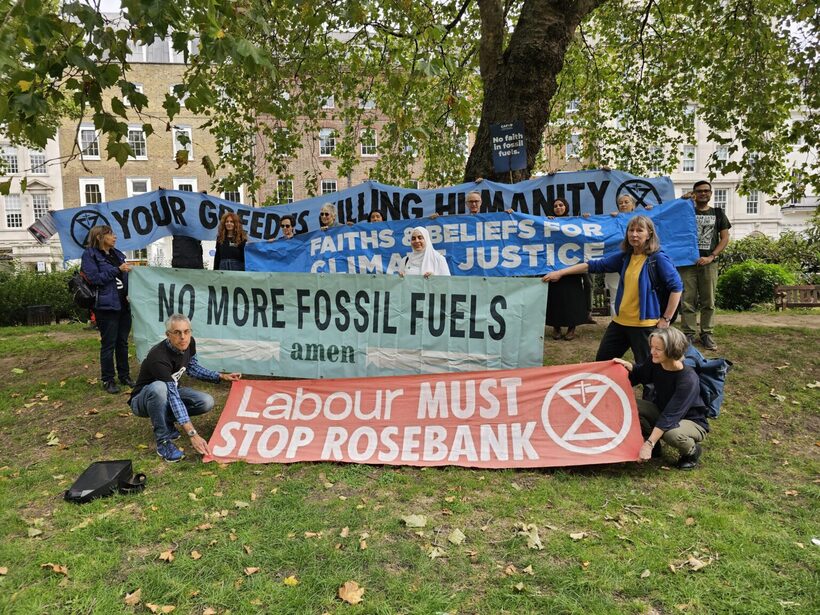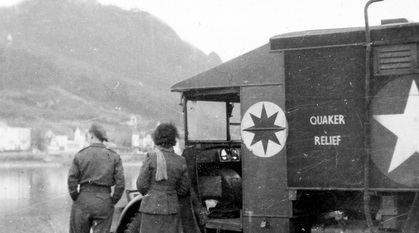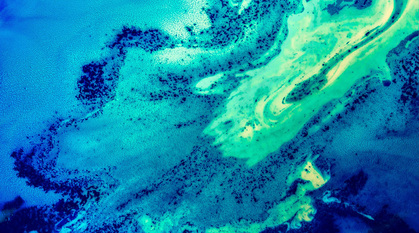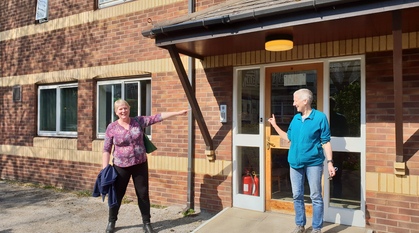Quakers and COP30: bearing witness to care
Our climate is in crisis. What political and social action can we take as COP30 approaches?

If only Donald Trump were right.
Not about everything, of course. But if only it were true that, as he claimed last month, climate change was merely 'the greatest con job ever perpetuated'. Nothing we need worry about, nothing to see here.
But in reality, the breakdown of our climate is a greater crisis than ever before.
Across the world, intense heat, floods and droughts, crop failures and extreme weather are destroying homes, communities, livelihoods, families and lives. In the UK, we are entering another winter in which people will have to choose between heating their homes and eating.
The crisis demands robust political responses, policies and messaging that recognise the urgency of our situation. Instead, we are seeing the growth of climate denial, plans to extract more oil and gas, airport expansion and threats to the Climate Change Act itself. It's tempting to give up hope altogether.
There are voices, clear and authoritative, ready to speak truth to power.
The National Emergency Briefing, on November 27 in Westminster is an opportunity for MPs and other decision-makers to hear from leading experts about the impacts of the climate and nature crisis on health, food, national security and the economy. Our Recording Clerk, Paul Parker, will be attending to represent Quakers in Britain.
Climate injustice is a greater and deeper wrong than ever before.
Those who have contributed least to the climate crisis, globally and locally, are paying its heaviest costs, brutal blows that fall again and again. Quakers in Britain have long recognised the ways in which the fossil fuel industry and billionaire interests have created and perpetuated this atrocity. We continue to stand, as at our interfaith vigil last month, in solidarity, care and witness, calling with courage and tenacity for justice to be done.
Climate justice needs mitigation, real reduction in greenhouse gas emissions. It needs adaptation, building resilience in communities, infrastructure and ecosystems. And it needs compensation for loss and damage, those climate harms which cannot or will not be adapted around. Quaker voices have been especially clear in calling for loss and damage justice, and this work continues, with a debate in the Scottish Parliament on 5 November brought by former First Minister Nicola Sturgeon.
An effective and transformational COP is needed more than ever before.
The annual Conferences of the Parties to the UN Framework Convention on Climate Change (COPs), haven't achieved anything near enough so far. But it isn't the idea of the world's nations gathering together that's the problem, but the power of fossil fuel lobbyists and powerful states to block real and radical action. This year's COP, in the Amazonian city of Belém, Brazil, is a critical one, with issues of forest protection, national pledges and climate finance high on the agenda. The Quaker United Nations Office (QUNO), will as always be bearing witness to the moral dimensions of climate change and the challenge of how to live sustainably and justly on the earth. They are co-hosting a side event exploring how peacebuilding, human rights, intergenerational solidarity and other ethical perspectives can help us achieve really transformative climate action.
Quakers care: about climate change, climate injustice and this critical moment.
Many Quakers have borne witness to that care through courageous and creative activism, including non-violent direct action, risking and experiencing arrest and imprisonment. We thank you and hold you in our hearts and in the Light.
Direct action is not the only way that we can witness. For every protest calling for more robust policies, we need people to envisage and express those policies, to organise, communicate, and support in so many different ways. Everyone can do something. We can stay informed about climate change and climate injustice, the role of the fossil fuel industry in funding and promoting denial, the ways in which real action on climate is also real action on health, fairness, community and individual wellbeing. We can speak of what we know to our friends, neighbours, colleagues and elected representatives. We can stand in solidarity with those in need and those bearing witness. We can care, pray, support and uphold one another.
Climate change is not a technical glitch that we can fix entirely. It is far too late for that. But every degree of heating matters, every life, every home and every child, living now or yet unborn. Whatever you do during this year's COP will make a difference. Thank you.


